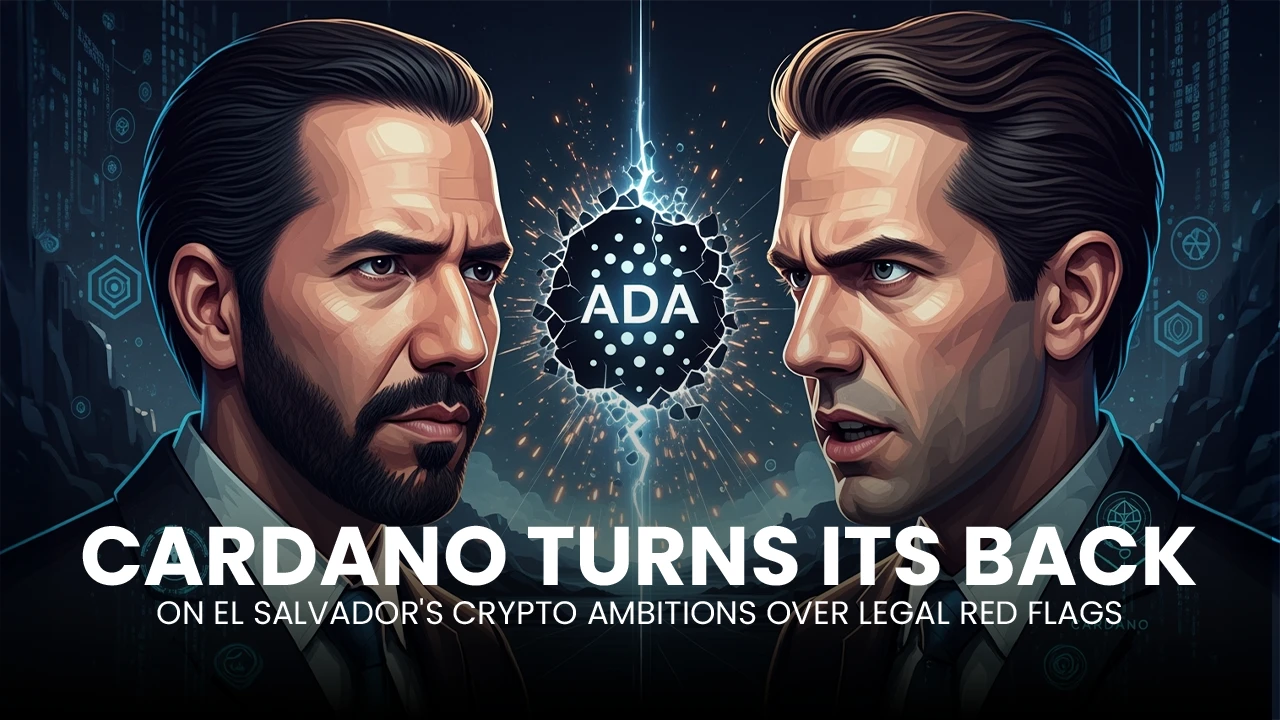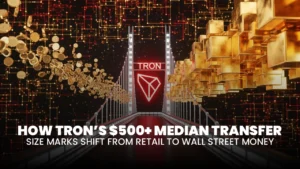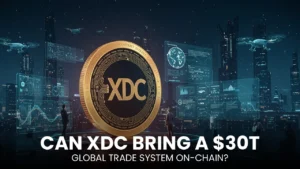Cardano Walks Out on El Salvador’s Crypto Ambitions Amid Legal Concerns

Cardano has made global headlines after its founder, Charles Hoskinson, publicly rebuffed El Salvador’s request to contribute to the country’s cryptocurrency adoption plan. The move emphasizes the importance of striking a balance between innovation and regulation when blockchain crosses with national policy. There are legal issues about gang affiliations, as well as questionable compliance guarantees.
Strong Legal Protections Required Before National Rollouts
In 2021, Salvadoran officials who wanted to add a national cryptocurrency project to their Bitcoin-based agenda reached out to Cardano, a DPoS-supported mechanism. This chance sounded like it would change everything. But Hoskinson pressed for clarity on compliance measures. Instead of firm legal frameworks, officials turned to President Nayib Bukele’s speeches on social media. That was a red flag.
Hoskinson described meetings that lacked documented guidelines. Officials were unable to provide specific regulations addressing anti-money laundering or sanctions compliance. This absence of a clear legal foundation raised serious doubts about the project’s viability.
The Tipping Point: Concerns Over MS‑13 Airdrop Risk
Eventually, the proposal advanced to a mass crypto airdrop intended for every citizen. But there was a problem. Among the recipients could be members of MS‑13—a gang listed by the U.S. Office of Foreign Assets Control (OFAC). Facilitating token distribution to sanctioned individuals could lead to severe legal repercussions.
Hoskinson said this issue made it impossible to proceed. He warned that a public airdrop without OFAC clearance risked violating U.S. law. After a week of negotiations, with no alignment from U.S. authorities, Cardano stepped away.
Institutional Rigor Versus National Ambition
El Salvador has been committed to Bitcoin adoption since 2021, accepting BTC as legal cash and investing in the Chivo wallet system. The country holds approximately 6,230 BTC, valued at around $679 million. Cardano’s rejection to join did not deter the government’s aspirations for a Bitcoin-first policy.
Yet Cardano’s decision highlights a broader challenge. National crypto programs need clear, enforceable regulations. Using public addresses or social media signals can be dangerous. Countries that wish to adopt digital currency must ensure they have the necessary legal and technical safeguards in place.
Also Read: How Tron’s DPoS-Powered Network Enabled $80B in USDT, Why It’s Only the Start
El Salvador’s decision to use only Bitcoin, rather than other options, is part of a trend where countries are opting for single-chain adoption. This technique is easier, but it can stifle innovation by leaving out other platforms. Cardano’s DeFi projects and network growth are not hindered, which demonstrates the distinct nature of national policies compared to the global decentralized ecosystem.
Insights for Policymakers and the Blockchain Industry
Cardano‘s decision to step back from partnering with El Salvador on its cryptocurrency plans serves as a notable case study for regulators and blockchain companies. Governments require robust frameworks that encompass sanctions screening, AML/KYC processes, and legal clarity. Without this foundation, high-level proposals risk stalling or collapsing.
Blockchain organizations proposing national-level partnerships must prepare detailed legal and technical documentation to support their proposals. Careful planning is essential when public funds and government interest are involved.
Unexpected Voices and Fallout
Hoskinson’s accounts stirred debate. While some praised his principled stance, others dismissed the details. Crypto advocate Cory Bates expressed doubt on X, and an analyst known as The Bitcoin Therapist labeled the claim as questionable. Neither El Salvador’s government nor U.S. regulators have confirmed or denied Hoskinson’s version of events. The result is a provocative narrative, but one with gaps open to interpretation.
Conclusion
Cardano’s decision to reject El Salvador’s cryptocurrency proposal underscores how legal and regulatory uncertainties can hinder high-profile blockchain collaborations. Hoskinson’s caution underscores the importance of establishing clear legal frameworks before scaling adoption. As government interest in national crypto initiatives grows, sound regulatory planning must come first. The case also highlights the strategic advantage of blockchain networks that embed compliance and performance through their core design, such as those using Delegated Proof-of-Stake (DPoS) consensus to support scalability and regulatory alignment.




